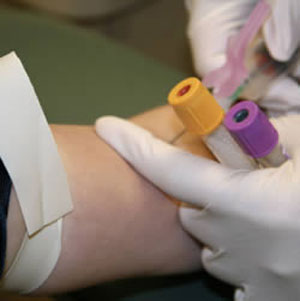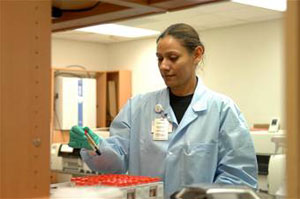Medical Laboratory Technician
Tasks & duties

Medical laboratory technicians may do some or all of the following:
-
prepare slides of blood and other fluids for examination under a microscope
-
follow set procedures when performing tests
-
perform tests on blood, body fluids and body tissues
-
test blood for blood groups and match blood for transfusion
-
examine cultures for bacteria that can cause disease in patients
-
perform antibiotic sensitivity testing
-
operate and maintain laboratory testing equipment
-
collect blood samples and body fluids from patients for laboratory testing
-
work under the supervision of a medical laboratory scientist and/or a pathologist
Specialisations
Medical laboratory technicians may specialise in one or more of the following areas:
-
biochemistry
-
microbiology
-
haematology (blood)
-
transfusion science (blood transfusion)
-
histology (tissues)
-
cytology (cells)
-
immunology (immune system)
Skills & knowledge

Medical laboratory technical assistants need to have:
-
the ability to follow procedures
-
good problem-solving and record-keeping skills
-
a thorough understanding of laboratory safety
-
a basic understanding of biological science
-
practical skills for performing experiments and operating scientific equipment
Entry requirements
To become a medical laboratory technician, you need to have at least four years of secondary education.
Secondary education
Useful secondary subjects include English, science and maths.
Training on the job
Skills are gained on the job under the direction of a scientist or pathologist. After two years' work experience, medical laboratory technicians can sit a Qualified Medical Laboratory Technician Certificate (QMLT) examination offered by the NZ Institute of Medical Laboratory Science.
Medical laboratory technicians may attend courses, conferences and seminars.
Registration
Medical laboratory technicians must be registered with the NZ Medical Laboratory Science Board. To register, you must hold a qualification approved by the board and have one year's work experience in a medical laboratory.
Once registered, you need to maintain an Annual Practising Certificate with the board.
Useful experience
Useful experience for medical laboratory technicians includes:
-
scientific work
-
work in the health sector
-
laboratory experience
-
work with computers and information systems
For more information, please refer to Career Services.
Document Actions
